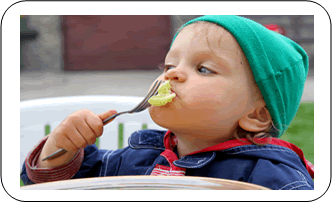CARD Feeding Clinic
|
|

Thursday, May 27, 1:00-5:00 pm What to do when a child won't eat: Feeding Disorders and Developmental Delays Pediatric feeding disorders are characterized by a child's inability to take in the appropriate amount of food and liquid necessary to maintain growth. Feeding disorders are displayed in many forms, including total food refusal, selectivity by type (e.g. carbohydrates only), and selectivity by texture, and presentation specificity. It is estimated that up to 80% of children with developmental disabilities display feeding problems. Feeding problems seen can range from minor inconveniences (such as always having to use the same utensils) to large complications (such as full blown tantrums during meals or bottle dependency) to medical problems (such as the need for enteral feeding via G-tube). Families with children with feeding disorders often find themselves isolated from friends and family, as they refrain from trying to feed their children in the community. Although the exact etiology of pediatric feeding disorders is unknown, there are several theories as to their origins. Development of the disorder can be attributed to medical complications or behavioral considerations (i.e. inappropriate consequences provided for mealtime behavior). However, it is most likely that an interaction of two or more factors produce the feeding problems. Through the application of behavior analytic principles, successful treatment can be reached. The ultimate goal is for the child to have age appropriate eating skills, generalize treatment gains to home, school, and community, and to train all caregivers to correctly implement the child's protocol. Presenter: John Galle Center for Autism and Related Disorders, Inc. (C.A.R.D.), Tarzana, CA (USA) John Galle is a a CARD workshop supervisor. He travels around the world to provide treatment plans to children with an autism spectrum disorder. |





